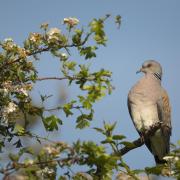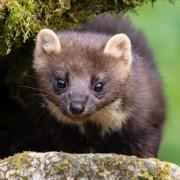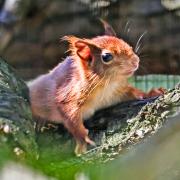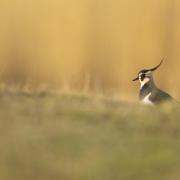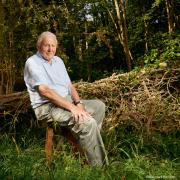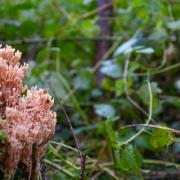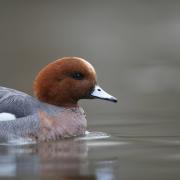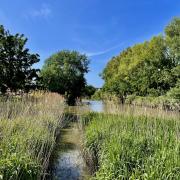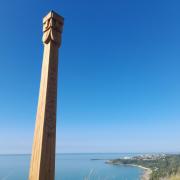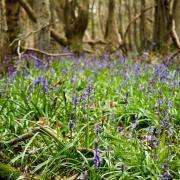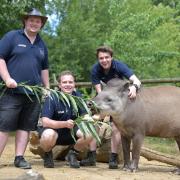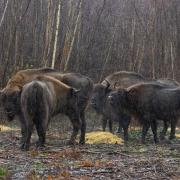Our parks, public gardens and green spaces are a much-loved part of life in our communities, but with many neglected and underfunded, a movement to mobilise local volunteers has come to the rescue. We meet the groups proving that all an unloved park needs is a few good ‘Friends’

If you’ve ever stopped to look at a notice board at your local park, you may have noticed a message from a group calling themselves the park’s ‘Friends’.
These groups of volunteers work tirelessly to improve and promote the green spaces in their communities, and the results can be extremely impressive.
A hard-working Friends group can turn around a neglected park and, thanks to grants from organisations like the Heritage Lottery Fund, can even help launch ambitious, multi-million pound restoration projects.
Dave Morris, chair of the National Federation for Parks and Green Spaces, is passionate about the role of these volunteers. The Federation is the voice of more than 6,000 groups throughout the UK.
“We exist to represent their activities, issues and concerns, and to amplify their passionate and knowledgeable voices,” he says.
“We share news and views, develop good practice, work to strengthen grass roots organisation, co-operation at every level, and speak out about the key issues impacting on our open spaces.
“In particular, at a time of ever-shrinking budgets, we believe that the management of public green space should be made a properly-funded statutory service, backed by strong community involvement.”
He describes the ideal Friends group as one that can meet up regularly to discuss local issues and work closely with those who manage the site. Among their tasks should be lobbying for better maintenance, producing newsletters, organising events and applying for grants.
“It’s very exciting and empowering to take ownership of your local space in this way and can make a real difference,” says Dave. “We encourage people to set up Friends groups for every green space and a Friends Groups Forum for every area.”

With many new groups set up over the last decade, you’ll be surprised how many places already have one in place.
It’s easy and inexpensive to join and a great way of supporting a local amenity, doing something positive for the community and the environment, and can be a great way to get some exercise if you want to get hands-on.
Dunorlan
The Friends of Dunorlan Park have been volunteering since 1996. The 78-acre Tunbridge Wells park was originally the grounds of a private house, laid out in the 1860s. Opened as a public park in 1946, it was later extended with adjoining fields and parkland opened up for public access. With a lake at its heart, boating is one of the biggest attractions here and the little boating station has been hiring out rowing boats, canoes and pedal boats since 1949.
The park, which had become quite wild, went through a major restoration 14 years ago, thanks to a combination of funding applications - £2.1m of which came from the Heritage Lottery Fund.
“Initially Dunorlan Park needed an enthusiastic and passionate group of volunteer Friends to highlight the decline of the park and then to support its restoration,” says group member Joan Hamilton-Smith. “Now the Friends are vital in ensuring the continued well-being of the restored park.
“We raise money, as well as applying to outside organisations for funds, for special projects; we organise popular nature walks in the park; arrange special visits to other parks and gardens for members; participate in volunteer activities in the park and maintain a positive relationship with the park owners Tunbridge Wells Borough Council.”
There are around 300 members and their main project at the moment is the restoration of the smaller of two islands in the lake, which wild waterfowl use for nesting. With its banks unsupported, it’s at risk of slipping into the lake. The larger island has already been restored at a cost of £26,000.

Singleton Lakes
The last of our featured green spaces was only created relatively recently, when the Singleton housing estate near Ashford was built in the 1980s.
Singleton Lake includes a man-made lake surrounded by foot and cycle paths, Buxford Meadow with its floodplain meadow and woodland, and Northern Field, mainly used for dog walking and ball games.
Described by Friends of Singleton Lake member Joanne Atkins as ‘a hidden gem nestled among houses and trees’, the area has become a haven for wildlife.
“The group was formed in May 2015 for a variety of reasons,” she says. “It’s an opportunity for volunteers to maintain, improve and promote Singleton Lake by acting as a pressure group to get things done, to achieve practical tasks, fund raise and engage the local community.
“We are also keen to spread awareness about the environment and are currently in the process of putting signs in our new notice boards regarding the best foods to feed ducks and birds at the lake.”
With a more natural feel than that of a formal park, the environment is understandably a main theme here. One of the group’s aims is to encourage young families to explore the area. Last year successful events included a photography session, a bug hunt and a bat watch.
“It is always encouraging to see children and young adults at our events as it is so important they have contact with nature and their local environment. We have already completed a fence weaving task and have many more events planned for this year, such as a bird watching session, a local walk, a litter pick, and we are soon hoping to dedicate the first Saturday of every month as a maintenance day to tackle any areas around the lake that need tidying up.”

Kearnsey Abbey & Russell Gardens
One of the newest groups has to be that belonging to Kearsney Parks near Dover. Covering two park areas in Temple Ewell - Kearsney Abbey and Russell Gardens - the group came together only last year, after a restoration project was put forward by the council.
A successful Heritage Lottery Fund application resulted in an impressive £3m and the Kearsney Parks Forum was set up to involve the wider community in the project.
Both parks were originally the grounds of substantial private houses, one with a more formal design than the other but both incorporating lakes which remain today.
The grant will largely be used to restore the original layouts and to facilities including the café, toilets, car parking and children’s play areas. A new programme of events is set to include music evenings, open air cinema, nature and discovery walks.
Ellington Park
One of the parks to have been reinvigorated recently thanks to the formation of a Friends group is Ellington Park in Ramsgate. A 12-acre site near Ramsgate’s railway station, it was seriously neglected until 2010, when the local community pulled together to form the Friends of Ellington Park.
“It was considered a black spot and was sadly neglected by the authorities and public alike,” says chair of the Friends group Beverley Perkins. “There were no remaining facilities, having been removed by the local authority. As a local resident I wanted to get involved with helping to improve the environment and joining the Friends has been a perfect way to do this.”
The Friends - with 240 paid-up members - have installed benches, picnic tables, a trim trail, a toilet, wildlife area, an outdoor classroom and sculptures, as well as indigenous plants.
There are all sorts of volunteering opportunities, from planting and weeding to being a steward at the many events - including a May Fayre, Music Sundays at the bandstand, Christmas Carols and the Battle for Victory re-enactment weekend.
“There is a new sense of civic pride when we see the enhancements that have taken place, and when we think about the regeneration to come. As the local authorities’ budgets are cut, things like parks are becoming more and more neglected. Our group has kept Ellington Park further up our council’s agenda than might otherwise have been the case.”
But Beverley explains the work they’ve done so far is almost nothing compared to what’s in store. There are plans for a new café, a shop, toilets, a children’s play area and refurbishment of the bandstand.
“This year, working with Thanet District Council and assisted by the Ramsgate Society, we have achieved a £1.7m grant to regenerate the park and the next 12 months will be spent with the detailed planning and officer/consultant appointments. The Friends are financing an archaeological dig this summer, with volunteers assisting. We hope to get all this work done by February 2018 so we can then submit our Stage 2 application to the Heritage Lottery Fund for adjudication in June 2018. Then it’s all systems go!”
__________
It seems that setting up these volunteer groups is of benefit all round. The members get a sense of ownership and wellbeing, the spaces receive much-needed care and the environment is improved for future generations. But there are still many green spaces in Kent which could use some ‘good Friends’.
It’s a fairly straightforward process to set one up and the National Federation of Parks and Green Spaces is there to support new projects. Dave Morris’s advice is to get a small group of similarly minded people together and go from there.
“Then maybe call a public meeting to discuss your local green space and what you’d like to achieve together,” he says. “Distribute publicity leaflets to local homes and to users.
“Kick things off straight away with positive activities you can all do together, while beginning to build up your membership through an email list, Facebook page and sign-up sheets. It’s important to try to involve the views of all the various types of users, and to be positive and determined.”
Get in touch
The National Federation of Parks and Green Spaces: www.natfedparks.org.uk
Friends of Ellington Park, Ramsgate: www.friendsofellingtonpark.org.uk
Kearsney Parks Project, Dover: www.kearsneyparks.co.uk
Friends of Dunorlan Park, Tunbridge Wells: www.friendsofdunorlanpark.org.uk
Friends of Singleton Lake, Ashford: www.facebook.com/friendsofsingeltonlake




